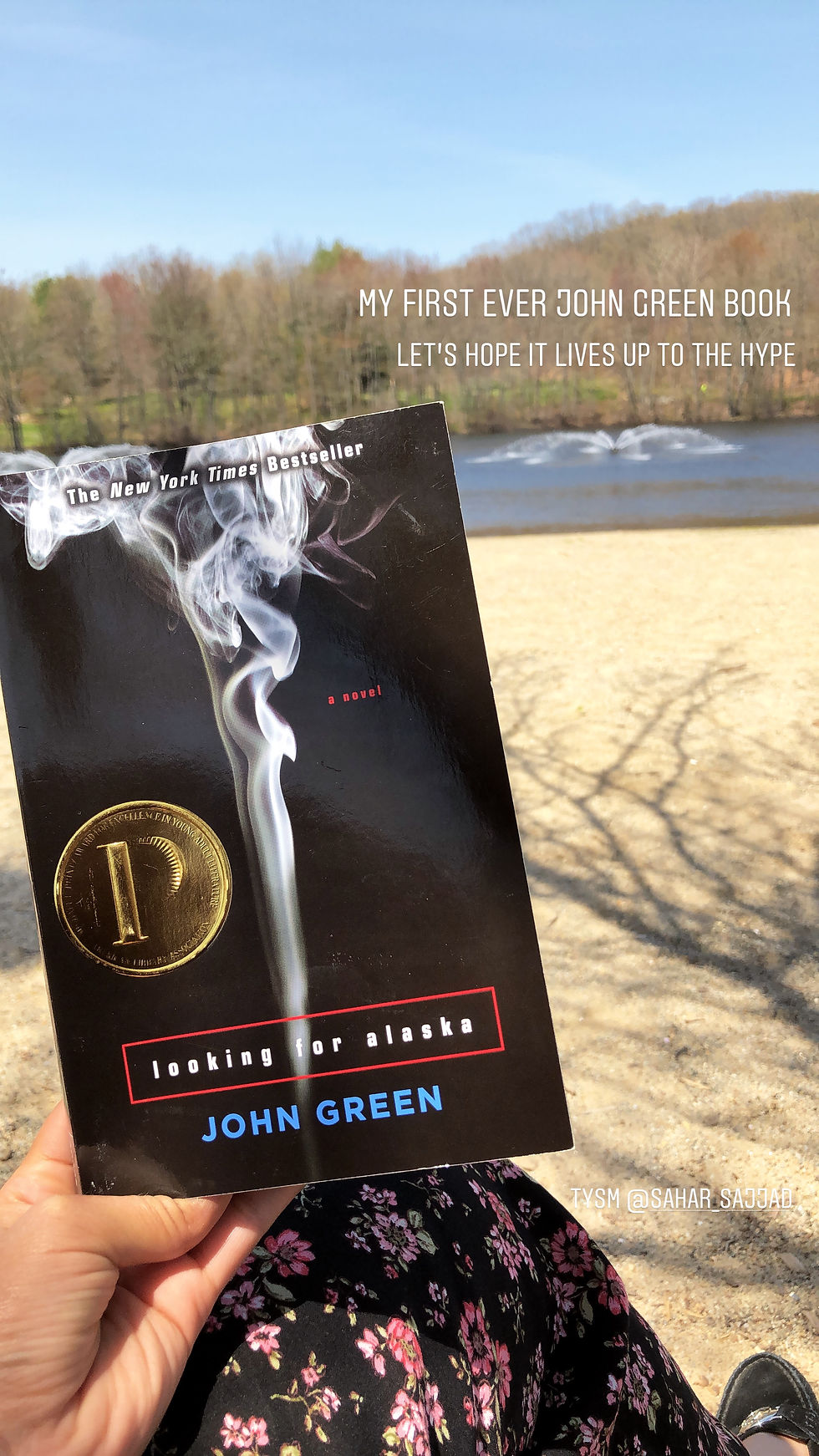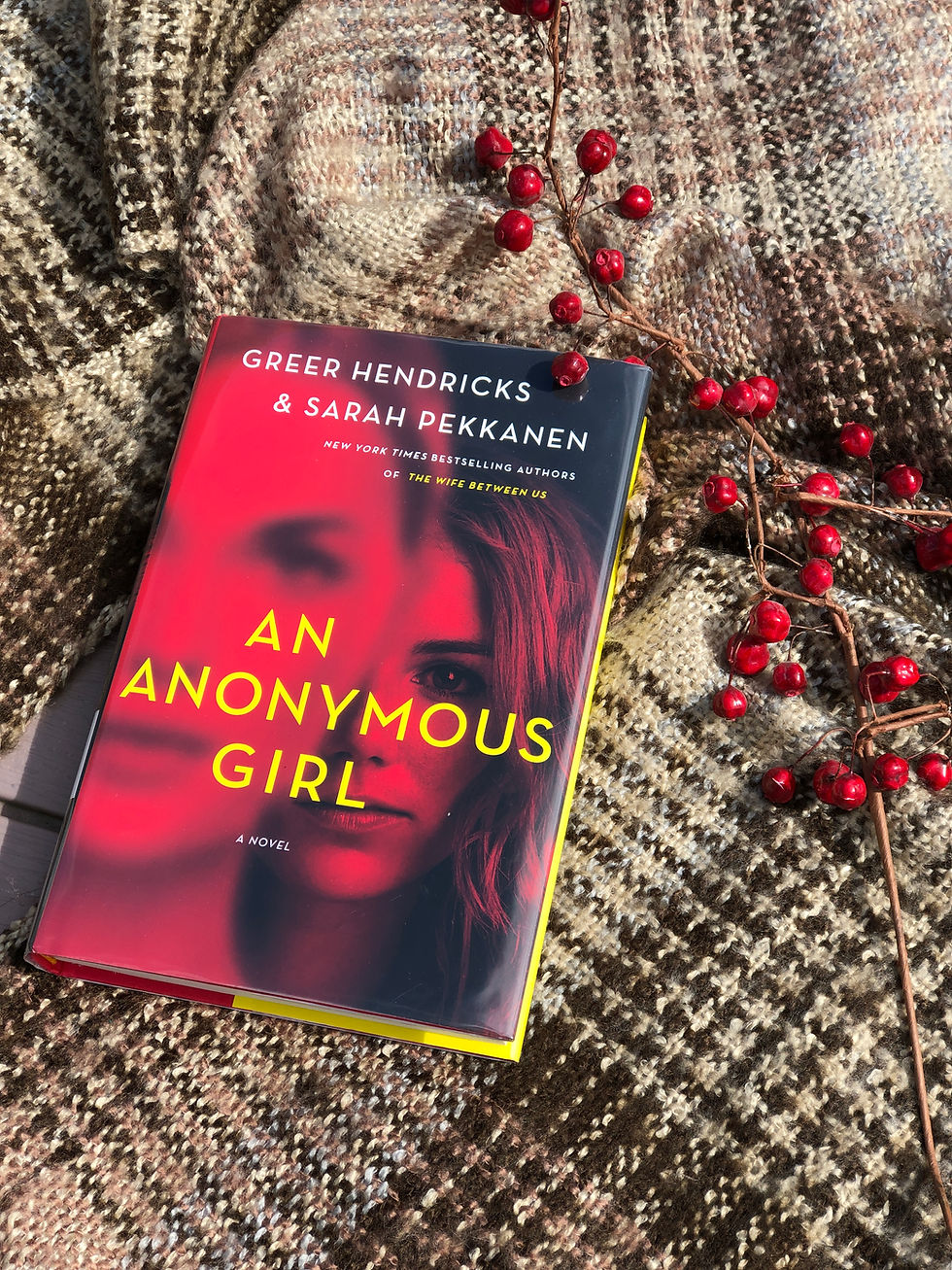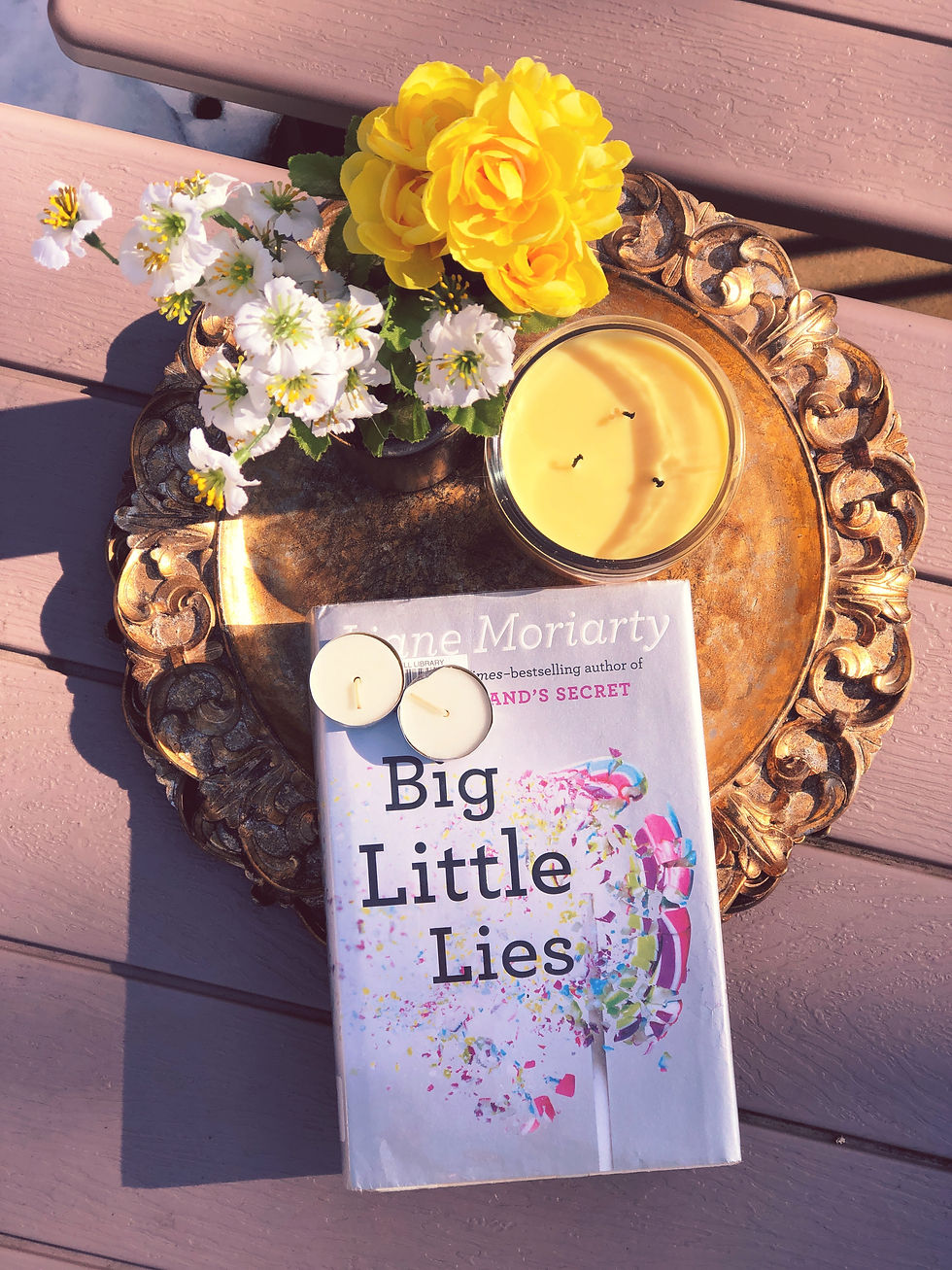Looking for Alaska*
- Gulrukh Haroon
- May 15, 2018
- 5 min read
I finally read a John Green book. At 23 years old, I’m finally qualified to talk about the book that captured the hearts and minds of nearly everyone I grew up with. So here it goes--

I love the idea of Miles “Pudge” Halter. His parents are very basic, his life so far has been underwhelming, and he puts himself in a new place solely for the thirsting desire for a “Great Perhaps.” I love his fascination with last words- his desire to know the people behind stories, rather than the stories themselves. Miles is a wonderful idea of a character.
I very much disliked Alaska Young. For all my love of Miles, I could not fathom why he would pine after the girl that so clearly treated him like everybody else. She was neither fascinating nor original. She’s both selfish and overbearing. Yes, we come to know a shred about her tragic past, but that doesn’t change the fact that she’s a toxic person. She sucks the attention from every room, bends others’ minds so they wrap around her life and forget their own, and yet she leaves such an alarming impact after her abrupt death. It bothered me that everyone gave her attention, when in my mind she was wholly undeserving. It quite reminded me of sentiments I’ve felt about myself in comparison with others throughout my youth. In comparing my less-than-beautiful self with other, more conventionally beautiful girls, I always hoped that the unique and genuine souls were the ones people would gravitate toward, not the Alaska Youngs of the world. But the characters’ infatuation with Alaska very much mirrored my own findings in life-- the attention-seeking, melodramatic Alaskas of the world will always be the heroines.
All of this is to say that nothing really happens in this book. Half way through, I didn’t find myself liking it, because although I had managed to read all of “BEFORE”, I wasn’t sure I wanted to read “AFTER”. It felt like I was reading about the mundane life of a bunch of people I don’t know. There was neither suspense, nor intense character development. It felt like the beginning of something, a painstakingly slow beginning. Life just seemed to be happening for these characters, unabashedly.
And then Alaska dies.
I couldn’t help but feeling like it made no sense. Not because Alaska died so young, or because I was so emotionally invested in her, but because she died before the reader ever gets a chance to figure her out, to know her. The characters who know her the longest in the story, the Colonel and Takumi, don’t know her. And Miles definitely doesn’t know her. Alaska is a series of unanswered questions. She’s a tease in every sense of the word. You keep reading because you have an overwhelming confidence in that everything will make sense in the end. It has to. All the loose ends will be tied. All the little details you register as strange or interesting as you read will make sense when the bits and pieces come together. As readers we’re in a pretty straightforward contract with the author-- the questions that are raised are answered. Alaska is an enormous question mark. But before we even get to wrap our heads around the questions, she’s gone.
It felt too soon. It felt like a mistake. Even after she was gone, I kept waiting for some note to appear, where she explained everything. The phone call, the tulips, why she went through random moody spells, how she felt about Miles. I kept waiting for some random cousin from Idaho to show up with all the answers. Somebody had to come. There was no way that she would just be dead and that was it.
But that was it.
And that is beautiful.
I was angry at first. It felt like such a waste of time. What was the story anyway? I read 200 pages and all i can say for it is a boy goes to boarding school and a girl dies. Because that is the story. Miles and Alaska weren’t dating, their entire acquaintanceship-to-friendship lasts four months. It feels like nothing happened. We barely got to know her. Alaska only had maybe 50 lines in the novel, and that’s pushing it. We don’t even know Miles yet, and he’s supposed to be the protagonist. There is still so much more to learn about these characters, but the opportunity never presents itself. And in that way, this book is incontestably unique. There are more unresolved issues at the end of this novel than there were at the beginning. And there is no sequel, or afterword or epilogue. The questions remain unanswered, floating in my brain, swirling in space, creating increased entropy.
And I think that’s the point. This boy falls wildly in love with Alaska but he only knows a fraction of her. He doesn’t get the chance to ask her the questions he thinks about because he assumes, as we all do, that the time for that is later. We assume that there are neat little bows for every loose end. And I cannot stress enough how untrue that notion is.
This book became very difficult for me to read when Miles begins to think about death and its consequences and realities. I lost my father 41 days ago. It was painfully abrupt. Unexpected. I won’t go into my feelings on death here, that is for another venue. But I will say that John Green accurately captures many of the sentiments I felt in the days and resulting weeks after my father’s passing. I have been swarming in many of the questions Miles asks himself, about the purpose of life, about the certainty of what comes after, about forgiveness and understanding and justice.
We realize every death is like Alaska’s death, in a way. Even my father, who was my best friend, mentor, idol- he only shared a fraction of his life with me. Somebody reading the story of my life might think I didn’t ask him enough questions. They might not understand how I’m so encapsulated and disabled by grief when there were thirty years of his life I wasn’t present for, thirty years in which he lived before I was born. If somebody were reading the story of my life, there would be a million questions floating in their mind about my father. Why did he say this at this moment? Was this thing he did significant? Was this foreshadowing? But none of these questions will ever be answered. Because death is a period in the middle of a sentence. We won’t ever know what the end of that sentence was supposed to be or could have been, all we know is what happened before the period.
Mr. Green, I don’t know if it has helped me understand my grief, or if it has merely helped me find my words in order to talk about it, but your novel has propelled me forward in my investigation of death. I thank you wholeheartedly for this novel, that is simultaneously nothing and everything, which makes it absolutely perfect.




Comments